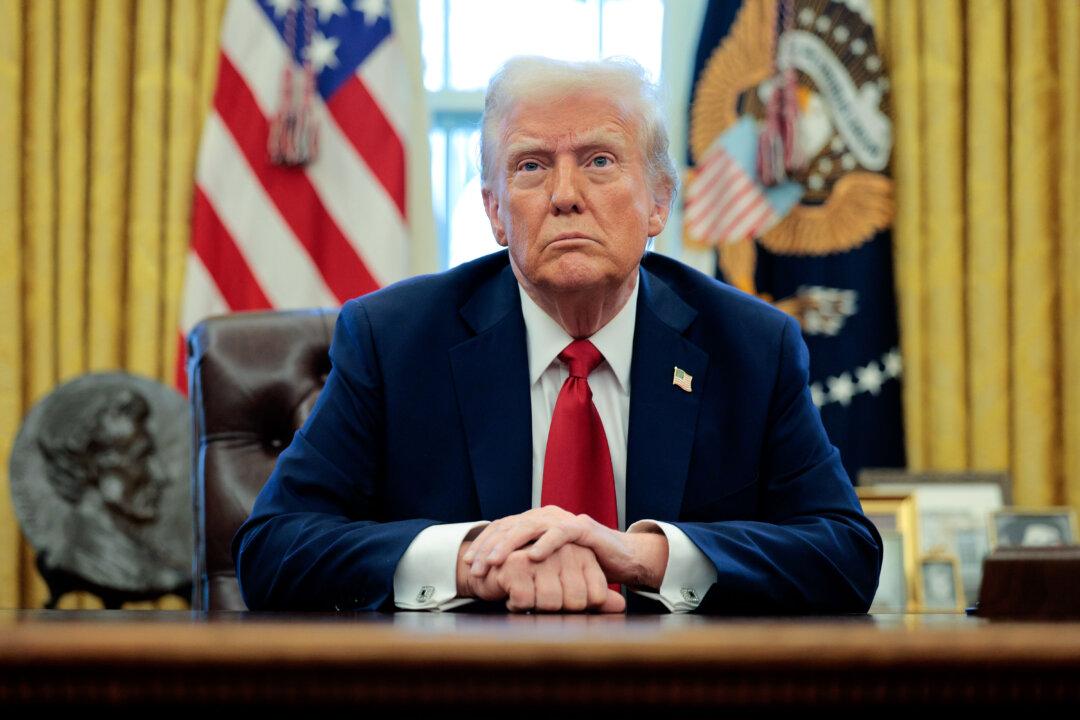President Donald Trump has signed orders to impose 25 percent tariffs on goods from Canada and Mexico and an additional 10 percent levy on goods from China.
Trump said the tariffs were imposed via the International Emergency Economic Powers Act “because of the major threat of illegal aliens and deadly drugs killing our citizens, including fentanyl.”





